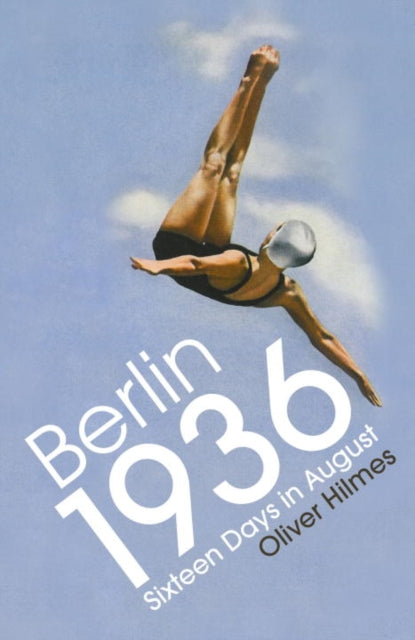
Berlin 1936: Sixteen Days in August by Oliver Hilmes
The opening ceremony of the 1936 Olympics was an eye-catching affair involving 20,000 doves, 3,000 singers and a giant zeppelin, said Nikolaus Wachsmann in The Guardian. After it had finished, Józef Lipski, the Polish ambassador to Germany, turned to Henri de Baillet-Latour, the Belgian president of the International Olympic Committee, and remarked: “We have to be on guard against a people with such a talent for organisation. They could mobilise their entire nation just as smoothly for war.” Oliver Hilmes’s “lively” history of the 1936 Olympics is made up of many such revealing anecdotes. For Hitler, the games were a chance to “show the new Germany to the world”, and no cost was spared in making them spectacular: organisers pioneered the torch relay that is still used today and Nazi bigwigs vied to hold the most “lavish reception”.
The games were designed to persuade the watching world of the Nazis’ friendliness, said Simon Kuper in The Spectator. Naturally, it was all a giant con. In the same month, Hitler signed a secret memo ordering that Germany be ready for war in four years. But to obscure this reality, their extremism was carefully toned down: Der Stürmer, the “raving, anti-Semitic” paper, was banned from Berlin’s streets, and the German team included one half-Jewish athlete, the fencer Helene Mayer. Even Jesse Owens, the black American athlete who, to Hitler’s displeasure, won four gold medals, mostly “got a friendly reception”, with the crowd chanting “Jesse!” after his 100 metres win. “That fortnight, the Nazis appeared both friendly and startlingly efficient” – and foreigners were mostly “gulled”.
Yet the warning signs were “there to be seen”, said Robbie Millen in The Times. Just a few months earlier, the Wehrmacht had marched into the demilitarised Rhineland. Meanwhile, political prisoners were building Sachsenhausen concentration camp, north of Berlin, which “over the coming years would house 200,000”. Even during the games themselves, some locals used graffiti and leaflets critical of the regime to try and educate foreigners. Hilmes’s book is a “vivid collage of vignettes” which, as they dance between “the ironic and the sinister”, present a picture of a “darkening Germany”. At the end of the games, Joseph Goebbels hosted a party on his private island, culminating in a fireworks display that turned the heavens “blood red”. It was an ominous finale. As Hitler’s chief propagandist wrote in his diary: “After the Olympics, we’ll get ruthless. Then there will be some shooting.”
